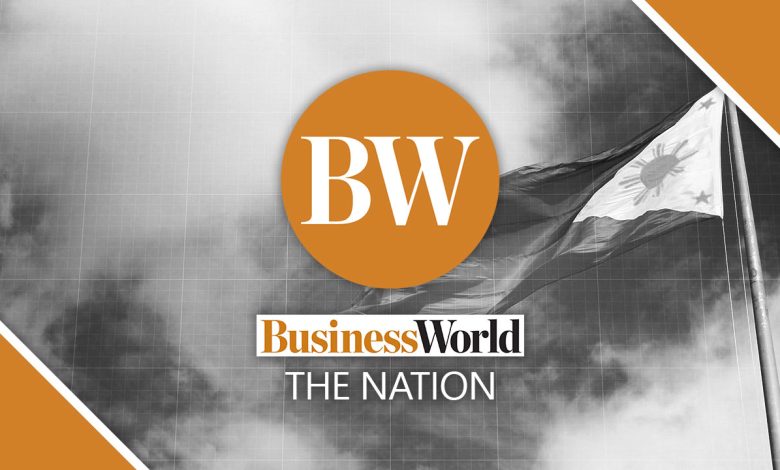Gov’t urged to delay easing amid Omicron

By Kyle Aristophere T. Atienza, Reporter
THE PHILIPPINES should delay relaxing coronavirus lockdowns amid the threat of the Omicron variant first detected in South Africa that scientists have said is more contagious than earlier strains, researchers from the country’s premier university said on Sunday.
Filipinos should also get vaccinated to get a better chance of fighting the virus, the OCTA Research Group from the University of the Philippines said.
“We enjoin the public to strictly follow minimum public health protocols and encourage them to get vaccinated as soon as possible,” OCTA fellow Fredegusto “Guido” P. David said in a Facebook Messenger chat.
He said the country’s daily coronavirus infections would likely stay below 1,000 this month. “It will happen as long as there is no Omicron surge.”
All parts of the country are now under Alert Level 2, the second most relaxed quarantine level. The government is set to announce new quarantine levels on Dec. 15.
Metro Manila, which accounts for a third of the country’s economic output, and other parts of the country must remain under Alert Level 2 for the rest of December “as a precaution while we are still gathering data on the Omicron variant and preparing for its possible entry into the country,” OCTA fellow Ranjit S. Rye separately said in a Messenger chat.
Rontgene M. Solante, an infectious diseases expert, said the capital region is prepared for the Omicron variant given its high vaccination rate.
“It’s better to be vaccinated rather than not be vaccinated because you still have antibodies for protection,” he told ABS-CBN’s Teleradyo, as experts around the world race to know whether the new variant resists existing coronavirus vaccines.
The Philippines had given out 92.68 million doses of coronavirus vaccines as of Dec. 11, according to data from the Department of Health (DoH). Of these, 37.27 million were second doses.
The country has injected 756, 682 booster shots, it added.
Scientists around the world are scrambling to learn how the Omicron variant behaves and how existing vaccines work against it.
The highly mutated virus has been detected in almost 60 countries, according to the World Health Organization.
Africa accounts for 46% of the almost 1,000 Omicron cases reported by 57 countries across the world, it said. Ten African countries have reported cases so far.
“Despite the widespread global presence of Omicron, more than 70 countries have imposed travel bans that are mainly targeting southern African countries — some of which have yet to report any Omicron case,” it said.
The Omicron variant has yet to be detected in the Philippines, but health experts have said it was only a matter of time before it enters the country.
John Paulo R. Rivera, an economist at the Asian Institute of Management, said the government should evaluate the situation and delay easing restrictions this month to sustain health and economic gains in recent weeks.
“The slow easing of restrictions is appropriate given the current infection, vaccination and booster rates, and delivery of vaccines,” he said in a Viber message. “It will help businesses and households to get some normalcy after almost two years.”
Mr. Rivera said the country’s tourism and hospitality industries might struggle to cope with the effects of emerging coronavirus variants. “All industries suffered the reduced demand but it’s more felt in the tourism, hospitality, transportation and aviation sectors.”
Tourism accounted for 13% of Philippine economic output in 2018, government data showed. In 2020, when the pandemic hit the country, its contribution fell 5.4%.
For the past five years, the average share of tourism to the Philippine economy was 10.5%.
South Africa, Botswana, Namibia, Zimbabwe, Lesotho, Eswatini and Mozambique, Austria, Czech Republic, Hungary, the Netherlands, Switzerland, Belgium, France, Italy and Portugal are on the Philippines’ red list for travel until mid-December.
“The Inter-Agency Task Force now has defined metrics to determine the COVID-19 situation and the capacity of the health system to ensure we can reopen, but only safely,” Makati Business Club Executive Director Francisco Alcuaz, Jr. said in a Viber message. “By sticking to that, we get predictability, build confidence and motivate all sectors to work on the metrics, especially vaccination and boosters.”
Mr. David said businesses have been helping fight the virus. “We would not be able to achieve success without help and cooperation from the private sector.”
Businesses in the country have been prioritizing fully vaccinated job seekers and patrons.
Critics have said hiring based on an applicant’s vaccination status is highly discriminatory. Requiring people to get vaccinated may also lead to political divisions and tarnish the credibility of the government’s pandemic response, they added.
The presidential palace earlier said establishments should enforce health protocols and “exclude all persons who cannot comply with the same from their respective premises.”



